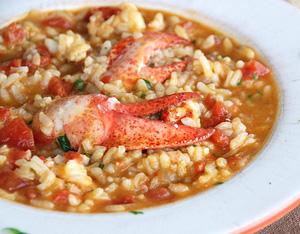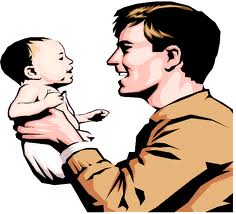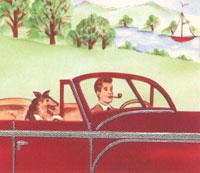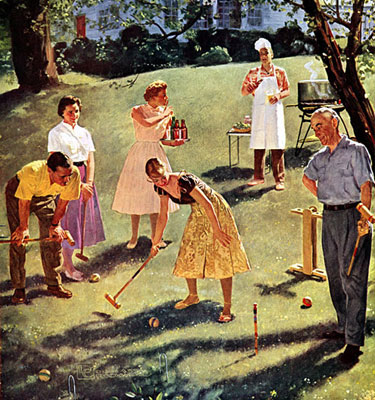 My father got me laid – twice. I’ll get to the food part in a minute.
My father got me laid – twice. I’ll get to the food part in a minute.
The first was a cute, spunky doctor who worked with him in his Radiology department in a VA Hospital on Long Island. She told me she was in Los Angeles and my father had told her to call me. She added, laughing, ”Like for a good time.”
"Come on up", I said, "I’m in Benedict Canyon. I’ll make you dinner." We bonded on my living room couch. Later, in the early hours of the morning I thought, “Gee, thanks, Dad. A nice present. And, it was my first doctor.”
The food. Growing up in a tiny town in upstate New York there weren’t any restaurants, just a luncheonette where if you asked for an egg salad sandwich the owner began by boiling an egg. The River Tavern Bar and Grill had a bar and no grill but in the summer you could get a pizza pie and in the winter they would defrost one for you.

 I've got the best Father's Day gift idea!
I've got the best Father's Day gift idea!
 I have never purchased a Father’s Day card...never had to! Once, I jokingly told my mother I was going to give her a Father’s Day card, as she served as both my mom and dad, but she asked me to buy her a Manhattan instead. She was a great ol’ broad! Jim Beam 1, Hallmark 0.
I have never purchased a Father’s Day card...never had to! Once, I jokingly told my mother I was going to give her a Father’s Day card, as she served as both my mom and dad, but she asked me to buy her a Manhattan instead. She was a great ol’ broad! Jim Beam 1, Hallmark 0. My late grandfather, Daddy Bill, was tall and skinny and uniquely dedicated to his habits and interests. He was a very snappy dresser – I vividly remember a purple wool sport coat that he once wore to Grandparents’ Day at my school, impressing my female teachers enormously – and he loved cars and taking painting classes and going swimming at the beach, even (or especially) when the water was way too cold, even for polar bears. But what he really loved was food.
My late grandfather, Daddy Bill, was tall and skinny and uniquely dedicated to his habits and interests. He was a very snappy dresser – I vividly remember a purple wool sport coat that he once wore to Grandparents’ Day at my school, impressing my female teachers enormously – and he loved cars and taking painting classes and going swimming at the beach, even (or especially) when the water was way too cold, even for polar bears. But what he really loved was food. 
